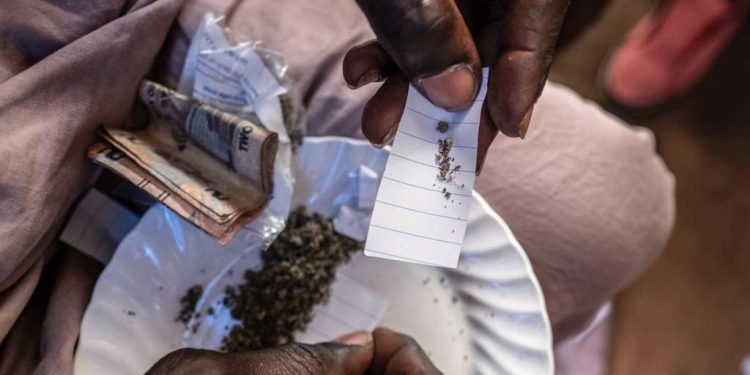By: Gunther Daramy
The proliferation of “Kush” in Sierra Leone today is no longer simply a moral debate — it is a non-traditional security (NTS) threat.
Non-traditional security threats are defined as challenges to the stability, survival, and well-being of states and societies which arise primarily from non-military sources such as health crises, environmental degradation, transnational crime, irregular migration, and illegal drugs (Asian Security Review, 2000; UNDP Human Security Framework, 1994).
Kush clearly fits into this category. It:
- weakens human capital
- undermines public safety
- increases state expenditure (health + policing)
- fuels organized crime networks
- erodes national productivity and development gains
Yet public discourse still treats Kush largely as a youth moral problem — not a national security emergency. That framing is insufficient and dangerous.
The Problematic
- How do we shift Kush from “morality” to “security”?
- How do we securitize the Kush crisis formally?
- How do we balance enforcement (policing) with social solutions (employment, treatment, rehab)?
Securitizing the Fight Against Kush
Securitization theory (Copenhagen School — Buzan, Wæver & de Wilde) argues that an issue becomes a “security” issue when a legitimate actor publicly defines it as an existential threat — and society accepts that framing.
Therefore, formal securitization should include:
- Presidential speech acts (State of the Nation — naming Kush as security threat)
- Parliament declaring Kush a national security emergency
- Strengthening the Anti-Drug Enforcement Agency to insert Kush into the national threat matrix
- Media & policy elites reframing language — from “drug use” to “security degradation”
Government Must Provide Alternatives
Security ≠ Police only.
Real security is creating conditions where young people do not need drugs to cope.
Government interventions must include:
- expansion of addiction treatment + rehabilitation centers
- youth skills development, apprenticeships, entrepreneurship micro-finance
- local councils integrating youth livelihoods into annual budgeting
Policy Direction — Government
- National Anti-Kush Strategy (2025–2030)
- Integrated Drug Intelligence Unit (IDIU)
- Mandatory rehabilitation + family counseling
Policy Direction — Regional Level
As Chair of ECOWAS, President Julius Maada Bio can rally MRU, AU and related bodies to:
- harmonize border control protocols
- integrate Kush into transnational crime frameworks
- coordinate surveillance of precursor chemicals
- adopt a shared ECOWAS Drug Early Warning System
Human Impact
A mother in Freetown has not seen her son for over a year. The moment he became addicted to Kush his life dissolved. She does not know if he is alive.
The Mayor of Freetown publicly confirmed that the municipality has been forced to collect dead bodies off the streets — many suspected to be Kush related.
This is the scale of the disaster.
Kush is now a national security threat.
If we do not securitize it — we will lose a generation.
About the Author
Gunther Daramy has 16+ years of experience in journalism, public relations, marketing and publicity. He holds a Master of Law in International Relations, specializing in non-traditional security threat assessment and management. He currently serves as a Direct Support Professional assisting adults with profound autism and developmental disabilities with skill acquisition, data assessment and behavioral planning.











